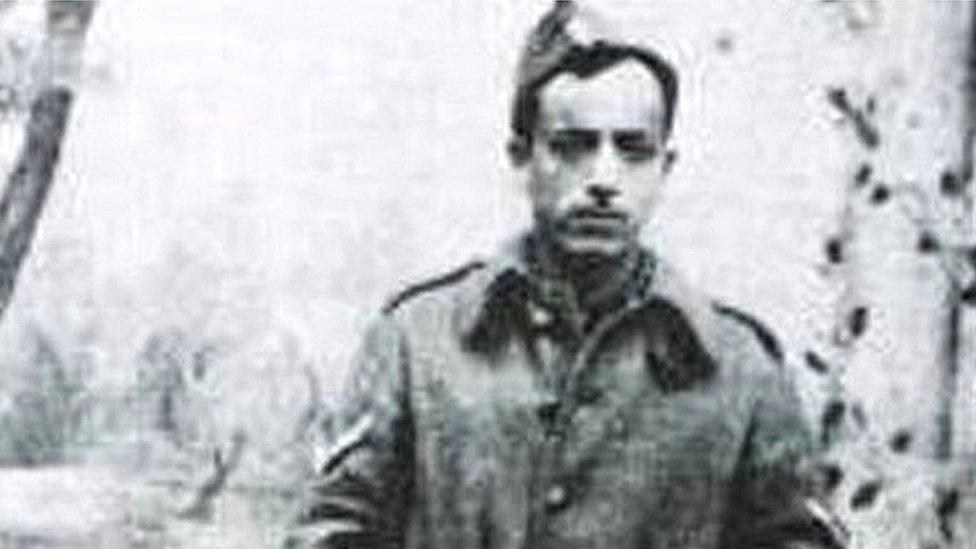Stutthof Camp: Holocaust guard Harry S found unfit to stand trial at 96
- Published
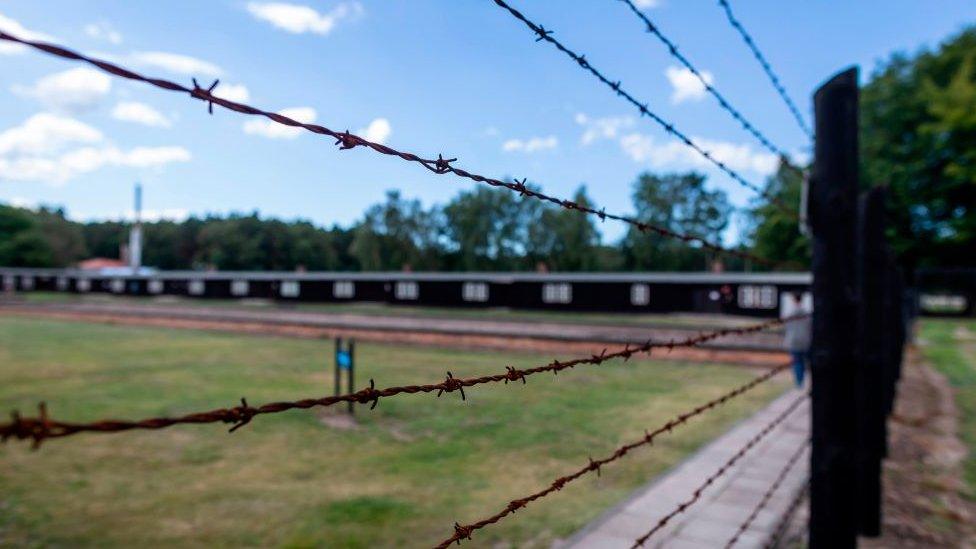
Stutthof, near Gdansk, is now a memorial
A court in Germany has declared a 96-year-old former Nazi camp guard unfit to stand trial but ruled that he should pay his own legal fees.
The man, named as Harry S, was accused of complicity in the murder of several hundred people at Stutthof Camp.
The court in Wuppertal said there was a "high degree of probability" he was guilty of the crimes.
His is one of three recent cases related to the Stutthof camp, which was located in then Nazi-occupied Poland.
Bruno Dey, 93, was handed a two-year suspended prison sentence last July after being found guilty of complicity in the murder of more than 5,000 prisoners.
In February, 95-year-old Irmgard F - who was a secretary at Stutthof - became one of the few women to be charged with aiding and abetting Nazi-era mass murder.
Harry S was a guard at Stutthof between June 1944 and May 1945.
He is alleged to have overseen the transportation of nearly 600 prisoners to the gas chambers at Auschwitz-Birkenau camp in September 1944.
He was charged with aiding and abetting in their murder in 2017.
Stutthof also had gas chambers and was notorious for the atrocious conditions in which some 100,000 inmates were kept. Many died of disease and starvation, while others were gassed, shot or given lethal injections.
The victims included many Jews as well as non-Jewish Poles and captured Soviet soldiers.
The west German court said in a statement on Wednesday that "due to his physical condition," Harry S "was no longer able to reasonably represent his interest in and outside of the trial".
But it went on to say that, as a guard at the camp, he would have overseen the transports and "recognised the scope and dimension of the mass murder committed" there.
As there was a "a high degree of probability" of his guilt, Harry S should pay his own expenses, the court ruled. It is not known how much the costs are, or whether the defendant will appeal.
Explaining the Holocaust to young people
Stutthof was officially designated a concentration camp in 1942. It was the first such camp built outside German borders in the war and the last to be liberated, by the Soviet army on 9 May 1945.
More than 65,000 people are thought to have died in the camp. Guards began using gas chambers there in June 1944.
Germany has been pursuing former Nazi camp workers since a landmark ruling in 2011 that convicted a former guard, John Demjanjuk, as an accessory to mass murder. He died pending an appeal, but the verdict set a legal precedent.
Previously, courts had required evidence of former SS guards' direct involvement in atrocities.
- Published5 February 2021
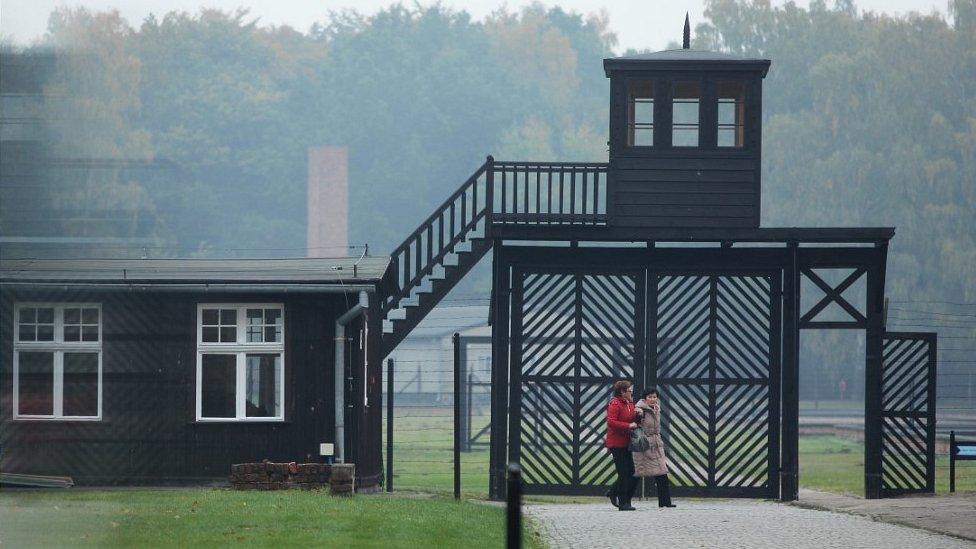
- Published21 May 2020
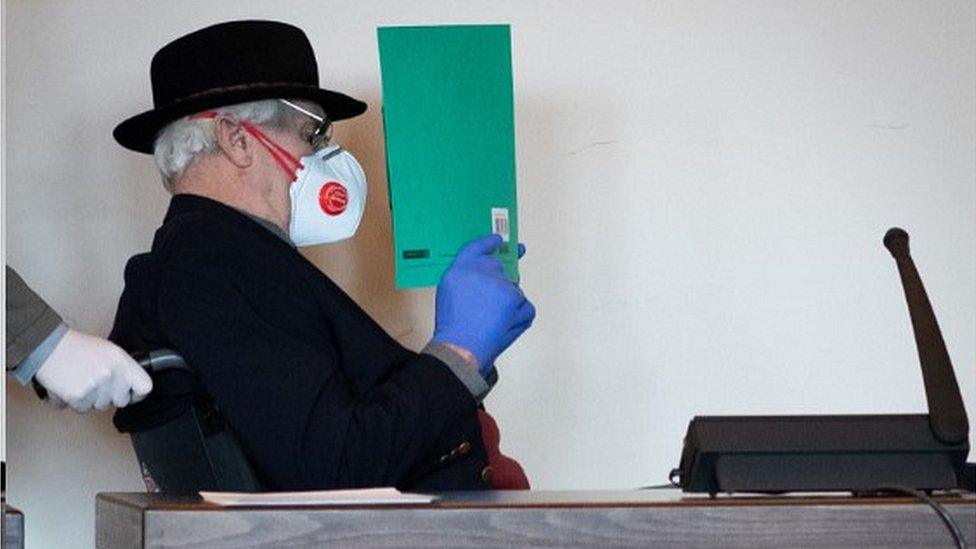
- Published17 October 2019
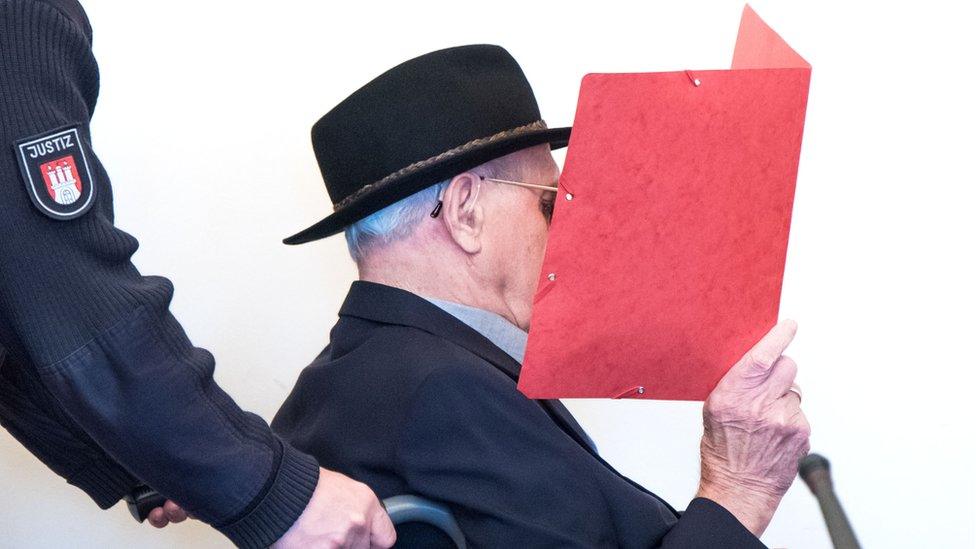
- Published16 January 2018
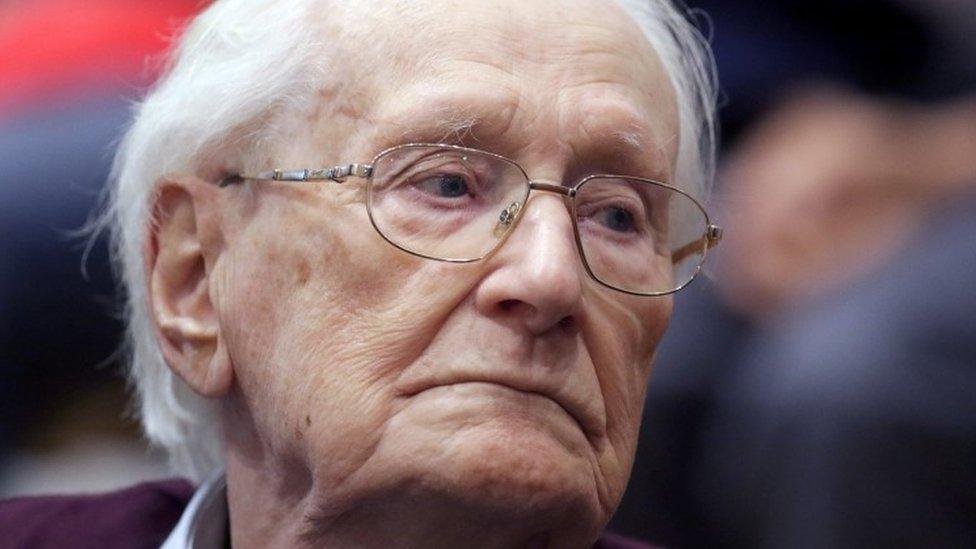
- Published1 December 2017
